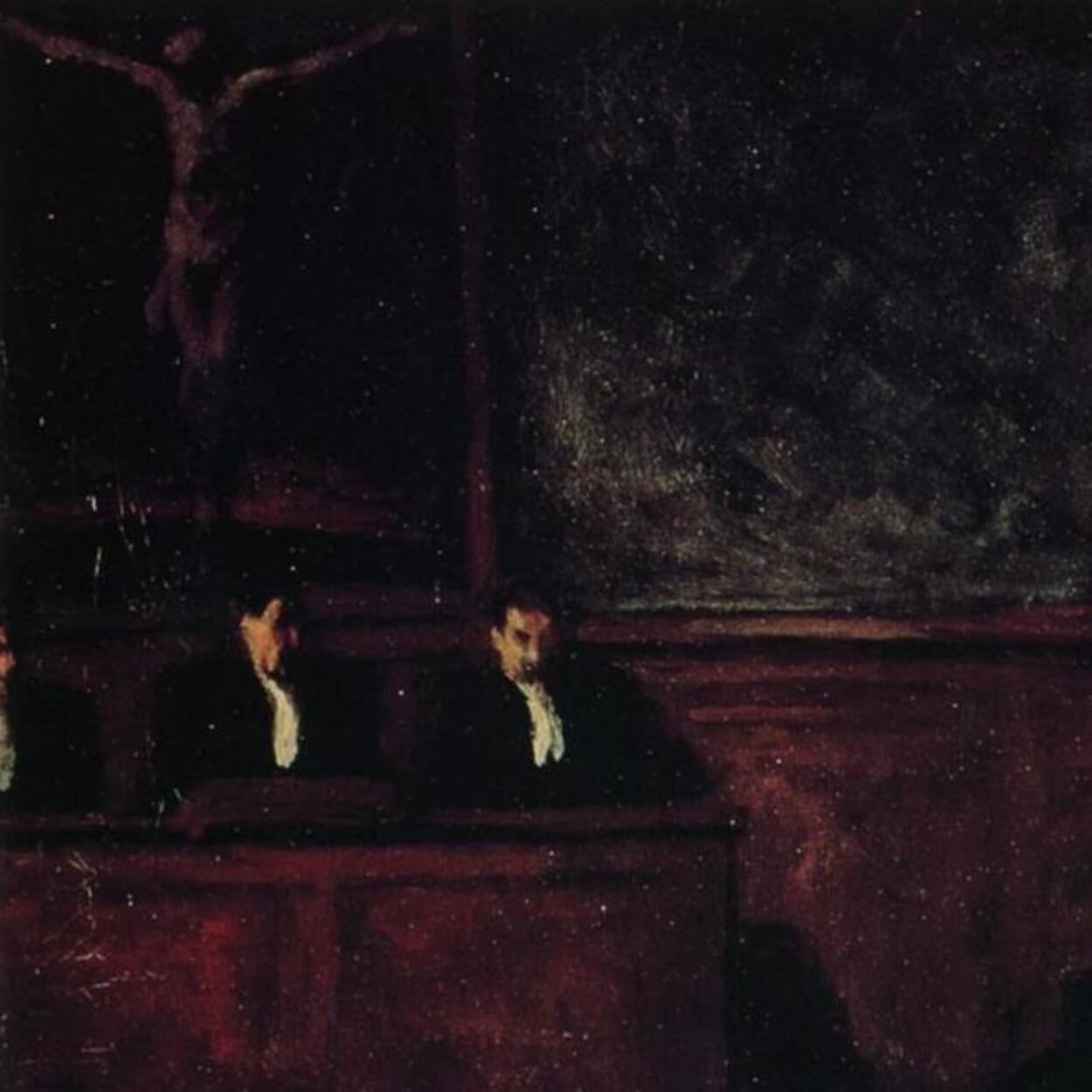Over the years, we’ve seen members of the Church try to delineate between what is morally problematic versus what is merely culturally discouraged—with an attempt to “shave off” those cultural prohibitions. Sometimes this is good and useful. Other times, the assumption seems to be that if there isn’t a bright line in the sand—a direct prohibition that warrants ecclesiastical discipline—then any norms against a behavior are merely cultural and therefore pharisaical. That is, they represent a fence we’ve unnecessarily constructed around the law, and which we should dismantle. Here are some examples:
- “Is there a rule against watching the Super Bowl on Sunday?”
- “Is there a rule against wearing hot pink polka dot ties while passing the sacrament?”
- “Is there a rule against using energy drinks several times a day?”
The answer to all of these questions is no. None of these behaviors will result in any ecclesiastical discipline. None of them mean you aren’t worthy to attend the temple. None of them are “against the rules.”
Does that mean that any norms against watching football on Sunday, or wearing flashy ties while participating in sacred ordinances, or feeding an energy-drink addiction, are merely cultural proscriptions that we can safely discard? In other words, does this mean that there’s nothing wrong with these behaviors at all, and that anyone who says otherwise is acting like a Pharisee, chiding folks for carrying bedrolls on the Sabbath?
How you answer this question depends on whether you employ principle-based moral reasoning or rule-based moral reasoning. And it’s vital to understand the difference.
Rules-based vs. principles-based moral reasoning
Rules-based moral reasoning asks, “Is behavior X a violation of the rules?” and “If so, is it grave enough to warrant discipline?” In other words, the question focuses on the bright lines drawn by the rules. If we engage in rules-based moral reasoning, anything which is not explicitly forbidden is allowed. Any perceived proscription against that broader set of behaviors is merely a cultural artifact, a pharisaical rule added on top of the law. The Word of Wisdom, from this perspective, forbids coffee and tea, but says nothing about drinking gallons of sugary drinks— and so any attempt to encourage or reinforce a norm against drinking sugary drinks goes above and beyond the rules.
In contrast, principles-based moral reasoning asks, “What is the principle behind the rules?” Instead of asking what is allowed, principles-based moral reasoning looks for what is good and chooses behaviors suited to obtaining that good. For example, we might ask, “What is the principle behind the Word of Wisdom?” There might be several: treating our bodies as sacred temples for our spirit and avoiding addictions. From this principle, we can extrapolate that drinking gallons of sugar every day—while not “against the rules”—is still a violation of the principles implied by the Word of Wisdom. And while it won’t (and shouldn’t) keep us from attending the temple, it would probably be good to cultivate community norms of healthy living that extend beyond the direct proscriptions against coffee and tea. If we engage in rules-based moral reasoning, anything which is not explicitly forbidden is allowed.
Elder Bednar taught in April, “Stated succinctly, a gospel principle is a doctrinally based guideline for the righteous exercise of moral agency. Principles derive from broader gospel truths and provide direction and standards as we press forward on the covenant path.” Elder Richard G. Scott similarly describes principles as “concentrated truth, packaged for application to a wide variety of circumstances.”
As we identify the righteous principle behind our questions, we can make wise decisions in ways we cannot do with rules-based moral reasoning alone. As Elder Scott noted, “[a] true principle makes decisions clear even under the most confusing and compelling circumstances.”
Let’s look at the pink polka-dot tie example. Is it against the rules in the Church handbook? Not at all! But that doesn’t mean that we should dismantle all norms against flashy ties. As an example of principles-based reasoning, Elder Bednar presents the principle of non-distraction. The issue with pink polka dot ties is not that they are forbidden in the handbook (they aren’t), but rather that they can distract. The principle is to not dress for sacred occasions in ways that distract from the ordinances. Armed with this principle, you don’t need rules to tell you not to wear flashy attire that draws attention to yourself.
Similarly, the principle of the Sabbath is about making the day a delight, a holy day, and a day of rest from worldly cares that centers on God as the source of our blessings and the object of our highest devotion. In the same conference talk, Elder Bednar quotes President Nelson:
How do we hallow the Sabbath day? In my much younger years, I studied the work of others who had compiled lists of things to do and things not to do on the Sabbath. It wasn’t until later that I learned from the scriptures that my conduct and my attitude on the Sabbath constituted a sign between me and my Heavenly Father. With that understanding, I no longer needed lists of dos and don’ts. When I had to make a decision whether or not an activity was appropriate for the Sabbath, I simply asked myself, ‘What sign do I want to give to God?’ That question made my choices about the Sabbath day crystal clear.
In other words, we no longer have to ask what is or isn’t “within the rules.” Because it’s not about the rules. It’s about what we want our actions to communicate to God and whether they reflect what He has communicated to us. When it comes to keeping the Sabbath, prophets have long steered us away from rules-based reasoning (where we make a list of do’s and don’ts against which we measure our actions) and towards principles-based reasoning (where we measure our conduct against the principle of the Sabbath).
Christ’s law was more demanding, not less
When Christ taught the principle of the Sabbath, He was clearly reprimanding his listeners for embracing a rules-based understanding of Sabbath worship. One is not a Sabbath-keeper merely for refraining from snatching handfuls of wheat during the Sabbath or carrying objects from one room to another. Those rules were not what made the Sabbath holy. It was our hearts, our dispositions, our attention that made the Sabbath holy.
Does this mean that Christ’s law is less demanding and more permissive than the litany of rules found in the Jewish customs of His day? Consider the following:
Ye have heard that it was said of them of old time, Thou shalt not kill; and whosoever shall kill shall be in danger of the judgment: But I say unto you, That whosoever is angry with his brother without a cause shall be in danger of the judgment (Matthew 5:21-22).
That is quite a bit more demanding than the “old” law. By outlining the principle, Christ actually increases our moral accountability, sometimes necessitating a stricter code of conduct. For another example, Christ continued:
Ye have heard that it was said by them of old time, Thou shalt not commit adultery: But I say unto you, That whosoever looketh on a woman to lust after her hath committed adultery with her already in his heart (Matthew 5:27-28).
In short, Christ taught that two people are not chaste simply by refraining from sex. A principles-based understanding of chastity includes more than merely abstaining from sexual relations. By Christ’s standard, someone who is lusting after images of women on the internet is being unchaste. Someone who engages in an emotional affair with another is unchaste, even if they have not actually had sex with the other person. Christ’s law is more demanding, not less, than the rules-based reasoning of before.
The dangers of fence-building
But are we suggesting the value of putting up fences around the law, adding layers of tradition and rules beyond the law itself? Isn’t saying, “It’s not against the rules, but you shouldn’t do it anyway,” just another way of being like the Pharisees of the New Testament, multiplying rules beyond laws given by God, adding layers of cultural constructs and expectations? Only if you believe that the Pharisees were guilty of being too strict in their observance of God’s laws.
Perhaps a better way of describing the Pharisees is that they were too legalistic in their interpretation of God’s laws, focusing excessively on rules in order to avoid the more deliberate, deeper (and demanding) discipleship required by principles. In other words, the problem was not that their religious observance was too strict, only that their strictness was confined to their outward behaviors, never touching the hearts those behaviors were intended to change.
Let’s look at some real scriptural examples, and contrast them with Jesus’s response (some tremendous liberties are taken here in wording):
The Law: “Love thy neighbor.”
The Pharisees: “But who is my neighbor? Surely not my enemy …”
Christ: “Yes, even your enemy.”
The Law: “Live chastely.”
The Pharisees: “But we have never committed adultery!”
Christ: “If you have lusted after another man’s wife, you have committed adultery in your heart.”
The Law: “Keep the Sabbath day holy.”
The Pharisees: “We do so meticulously!” [Counting steps, etc.]
Christ: “Have you given any thought that day to doing good and serving God? If not, then you have made the Sabbath different, but not particularly holy.”
If someone says, “The rule says ‘Love my neighbor,’ and since I love my neighbors, I’m fine if I don’t love my nation’s enemies, who surely aren’t my neighbors,” one is keeping the rule but neglecting the principle. This bare adherence to the rules while ignoring the principle is precisely why Christ said, “Woe unto you, scribes and Pharisees, hypocrites! for ye pay tithe of mint and anise and cummin, and have omitted the weightier matters of the law, judgment, mercy, and faith: these ought ye to have done, and not to leave the other undone.”
In each of these examples, the Pharisees used rules-based reasoning not to expect too much of others, but to expect too little of themselves. The Jesus of the New Testament pierced right through the excuses of those who sought to trivialize or minimize their betrayal of God’s higher hopes for them.
Let’s look at another example from recent times. If we start to think of chastity as a set of rules, then we can pride ourselves for keeping a litany of rules (I didn’t have sex or inappropriately touch anyone!), while at the same time ignoring the very core of what chastity is all about. This is why those who engage in non-committal make-outs (NCMO)—an increasingly popular practice at Church universities—can “keep the rules” (e.g., no sexual contact), yet at the same time neglect to live chaste lives. Their singular focus on the rules is what allows them to excuse indulgence that compromises the principles of chaste living. Consider:
The Law: “No sexual relations outside of marriage between man and woman.”
BYU students: “But two strangers who are making out (NCMO) aren’t having sex, so surely they are fine, right?”
Christ: ___________ (We’ll leave it up to readers to fill this in.)
In short, the Pharisees selectively used rules-based reasoning to justify flouting the principle of the law. And so when people claim that it’s possible to chastely make out with strangers— stimulating their passions in commitment-less encounters but stopping short of direct sexual contact—they are actually being pharisaical. They are employing rules-based reasoning in ways that neglect the weightier matters of the law. That is the chief danger of fence-building (e.g., rules-based reasoning).
A deep dive: same-sex dating
Recently we read a question in a Facebook forum that went something like this: “If I am in a same-sex dating relationship with a member of the Church, can I get baptized? Can I still go to the temple?” A lot of the discussion that followed centered on whether or not the couple were breaking the law of chastity—that is, whether or not they were having sex. A number of people in the conversation concluded, essentially, “As long as you aren’t having sex, you aren’t breaking the law of chastity, which means you are being chaste.”
We’ve seen versions of this question a number of times in the past year or so, and almost every time, people provide similar versions of this response. The reasoning seems to be that, as defined in the newly updated Church handbook, the law of chastity forbids unmarried sexual relations, but is now silent on matters of same-sex dating and romance. In fact, the Church Handbook, BYU Honor Code, and other Church sources no longer specifically address whether same-sex romantic behavior is sinful.
Does this mean the Lord condones same-sex romantic behavior which stops short of sexual intercourse?
Elder Paul V. Johnson’s letter in March of 2020 clarified that recent changes in the handbook were not intended to change the substance of our understanding of chastity. As far as we understand, what has changed (if anything) as a result of updated policies are the contexts and behaviors that trigger ecclesiastical discipline. Whether we believe these changes reflect a change in the Church’s attitudes about same-sex relationships depends upon what we believe to be the principles involved.
Why isn’t it appropriate for two boys to hold hands, kiss, and consider themselves “dating partners,” when we often consider it lovely and virtuous for a boy and girl to do the same? What is the principle behind these distinctions?
Hand-holding, dating, and kissing can be perfectly chaste outside of marriage. But that doesn’t mean all hand-holding, kissing, and dating is equally “chaste.” The reason they can be chaste is not because they aren’t sex (a rules-based distinction), but because they are part and parcel with courtship, the beginning of a relationship that anticipates fruition and eventual consummation in marriage. Romantic liaisons—including dating and kissing—can not be cleanly separated from the concepts of courtship (or at least the anticipation of potential courtship) and marriage. (This is another reason why NCMO is inappropriate.) We simply cannot expect to retain gender complementarity in marriage and sex while relinquishing it in dating and romance.
In short, romantic liaisons are connected (as a matter of principle) to courtship, and the norms of courtship are informed by our understanding of marriage. In this way, the norms and practices that surround dating inform our intuitions about the norms of marriage (and vice versa). When it comes to our moral intuitions, we simply cannot expect to retain gender complementarity in marriage and sex while relinquishing it in dating and romance. The law of chastity states that sexual relations are to be reserved for marriage between man and woman, and this implies gender complementarity in all the norms and practices surrounding and up to marriage, including those of dating and courtship. Relinquishing those norms in the latter but not the former reduces chastity to a set of rules with no unifying, underlying principle underneath them. Rather than a “higher law,” it turns it into something that more closely resembles the rules-based customs of Jesus’s contemporaries.
We believe this is precisely why Elder Paul V. Johnson wrote, in his clarifying letter:
The moral standards of the church did not change with the recent release of the … updated Honor Code. There is and always has been more to living the Lord’s standard of a chaste and virtuous life than refraining from sexual relations outside of marriage. Lasting joy comes when we live the spirit as well as the letter of God’s laws.
A foundational doctrine of the restored gospel of Jesus Christ is that ‘marriage between a man and a woman is ordained of God and that the family is central to the Creator’s plan for the eternal destiny of His children’ … Same-sex romantic behavior cannot lead to eternal marriage and is therefore not compatible with the principles included in the Honor Code.
From this statement, we think we must conclude that just because thresholds for ecclesiastical discipline have been readjusted, does not mean that same-sex dating has been redefined as chaste and virtuous. Rather, we think the changes in the Honor Code language were made precisely because too many were relying on rules rather than principles—and they wanted to shift the discussion away from rules and back towards principles. Ironically, those who are using this as a pretext to dismantle norms against same-sex dating are doing precisely the opposite. In our view, they are moving towards reliance on a more legalistic mode of moral reasoning and neglecting the “weightier matters of the law.”
Discipleship involves striving to understand the deeper principles and then using sound judgment and discernment to determine how these principles should filter into our norms and practices. Based on the principle of gender complementarity in sex and marriage, it seems sensible to presume God’s interest in a similar complementarity in dating, romance, and other norms of courtship.
In addition, not everything that is beneath the threshold for ecclesiastical discipline is prudent or good. Drinking alcohol is a violation of the Word of Wisdom that might invite ecclesiastical discipline—visiting bars and pining for alcohol does not. But the latter is certainly imprudent for someone striving to keep covenants and who is regularly tempted to drink. President Oaks has previously distinguished between the “line of sin” and the “line of prudence.” We can “stay within bounds” (e.g., follow the rules) while still engaging in behavior that imperils our good judgment and continued discernment. Temple recommends are a vital bellwether of our spiritual health, but they are not the only important gauge we should use.
Conclusion
In conclusion, from our reading of the gospel message, it seems clear that our moral reasoning should be based on principles instead of rules. If a man wants to create a rulebook that listed all of the things he shouldn’t do to wrong his wife, that book would be endlessly long. But why would he even want such a book, if not to try to tease out what he can get away with? Even the desire for such a comprehensive list would, itself, be a way of wronging his wife. He would be pining for a way of life where he is no longer evaluating his actions in light of his ongoing duties towards her, and instead against a set of rules that relieves him of that ongoing project of discernment and devotion.
In a similar way, rules-based discipleship is more than simply incorrect. It actually hinders our salvation because we mistake the form of discipleship for the substance of it. Thus, Paul warns Timothy about those “having a form of godliness but denying its power.” And Isaiah channels the Lord’s lament about those who “draw near me with their mouth, and with their lips do honor me, but have removed their heart far from me.”
Why is this such a concern to God? Perhaps because instead of allowing Christ to cultivate within us a disposition to love what He loves, we settle for constraining our behavior in certain ways in exchange for indulging ourselves in whatever ways we can fit into the “rules.” We become whited sepulchres whose outward rule-abiding appearance serves as a deflection from our inner spiritual distractions. Whereas rules-based discipleship asks, “What externally imposed hurdles must I clear before I can pursue my own goals with a clear conscience?”, principles-based discipleship asks, “What must I do to have the image of God engraven upon my countenance?”
An additional danger of rules-based reasoning is that it can lead us to think ourselves righteous for complying with rules, while ignoring other laws such as extending compassion and grace. None of the arguments we set forth here imply that we should engage in mean-spirited discourse or self-righteous judgment against those who watch the Super Bowl, drink sodas several times a day, NCMO, or date members of the same sex. Reinforcing norms that reflect the principle of God’s laws (and not merely a legalistic, rules-based version of God’s laws) also implies reinforcing norms of compassion, patience, inclusion, and forgiveness—even as we collectively pursue a holier life and a holier community.
As we’ve proposed here, that “higher and holier” principles-based approach is almost certainly more demanding of us than any rules-based approach. It implies a higher level of discernment than, “Will this disqualify me from the temple or invoke Church discipline?” It involves asking ourselves what longer-term trajectory our current choices are placing us upon. President Oaks taught:
[W]e make countless choices in life, some large and some seemingly small. Looking back, we can see what a great difference some of our choices made in our lives. We make better choices and decisions if we look at the alternatives and ponder where they will lead. As we do, we will be following President Russell M. Nelson’s counsel to begin with the end in mind. For us, the end is always on the covenant path through the temple to eternal life, the greatest of all the gifts of God.
When it comes to seemingly-thorny questions like, “Is same-sex dating ok?” or other similar questions, rules-based reasoning and principles-based reasoning are going to lead us to different answers. We suggest that principles-based reasoning will help keep us focused on the covenant path, the temple, and the Savior—and help us develop and reinforce community norms that scaffold and support those commitments. As Elder Scott taught, “[a] true principle makes decisions clear even under the most confusing and compelling circumstances.”


















